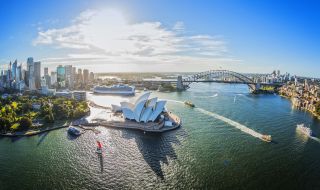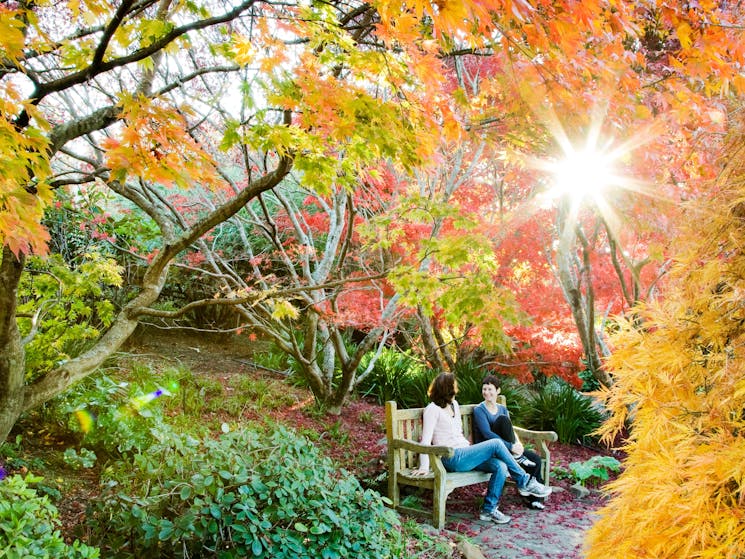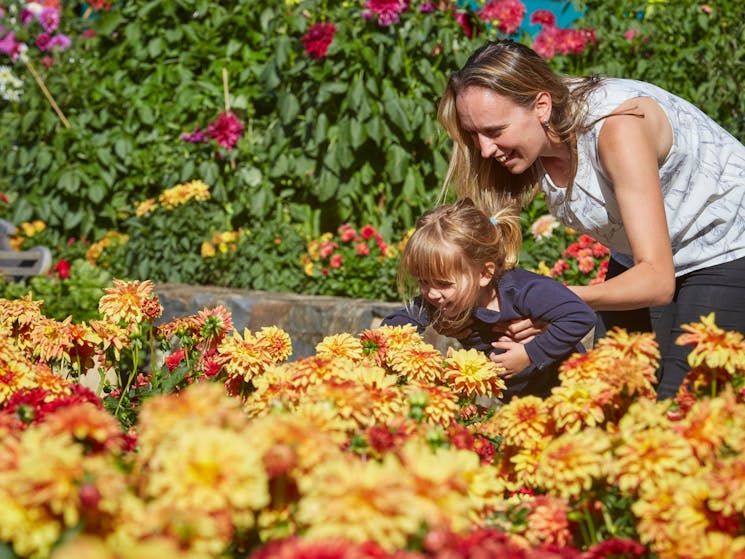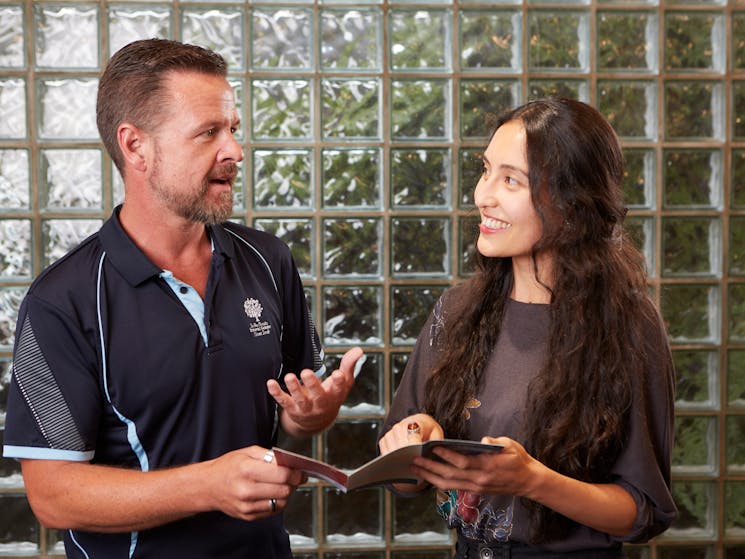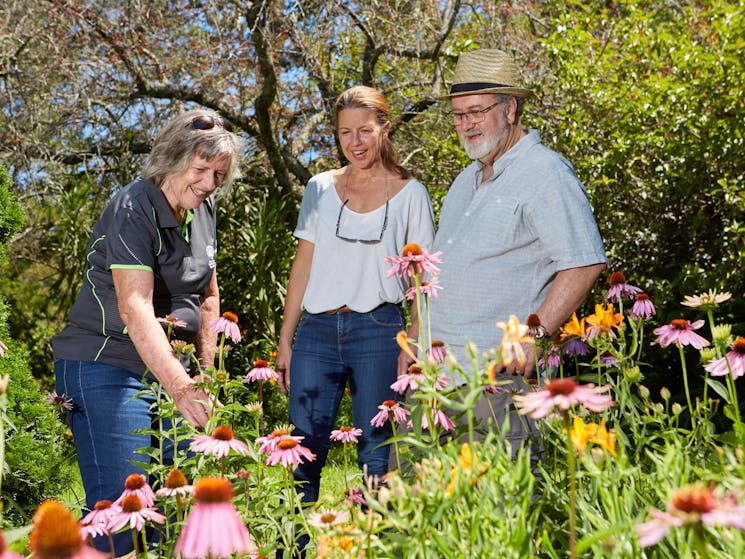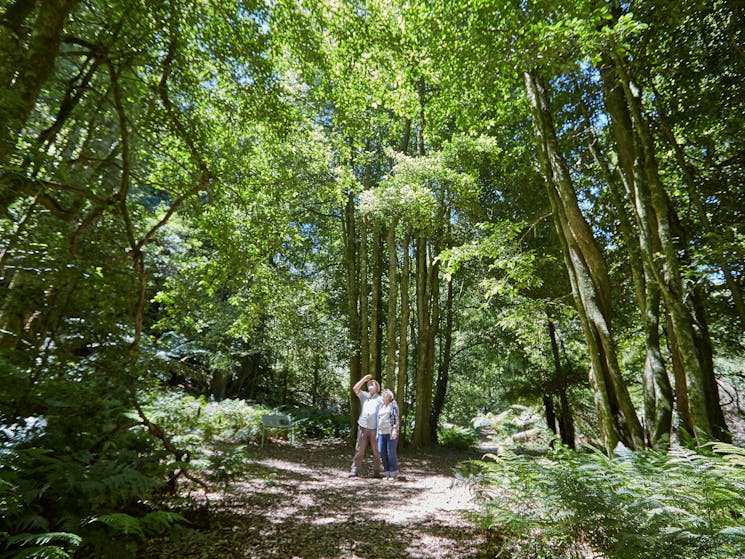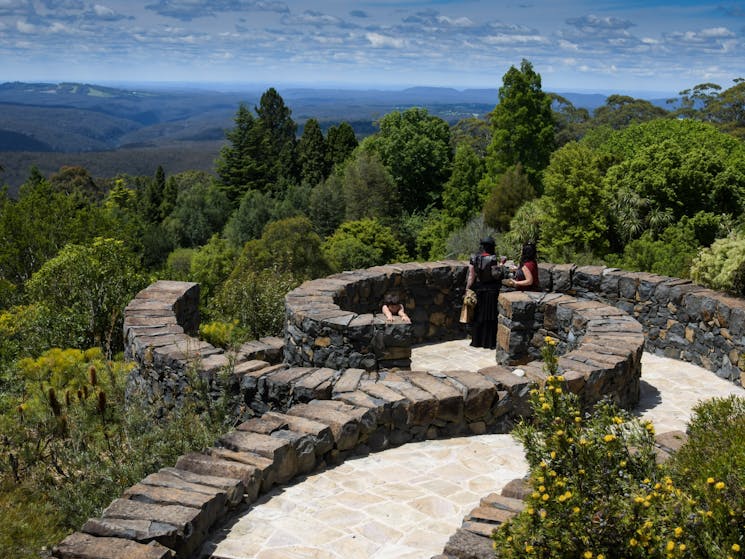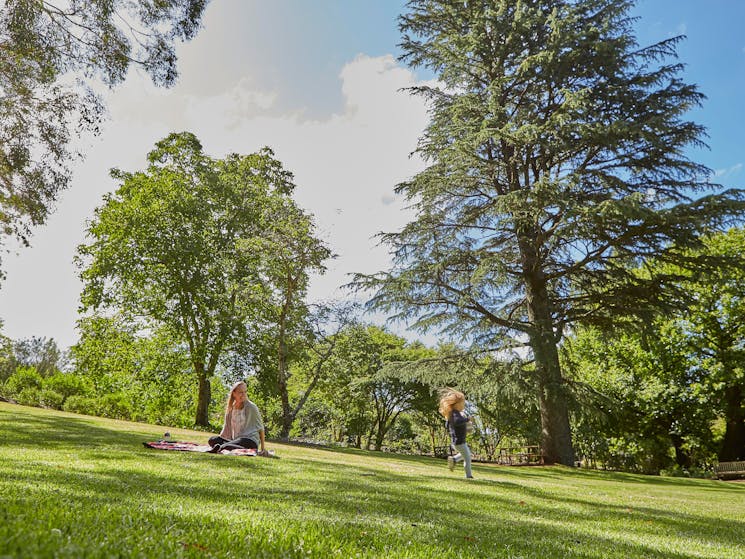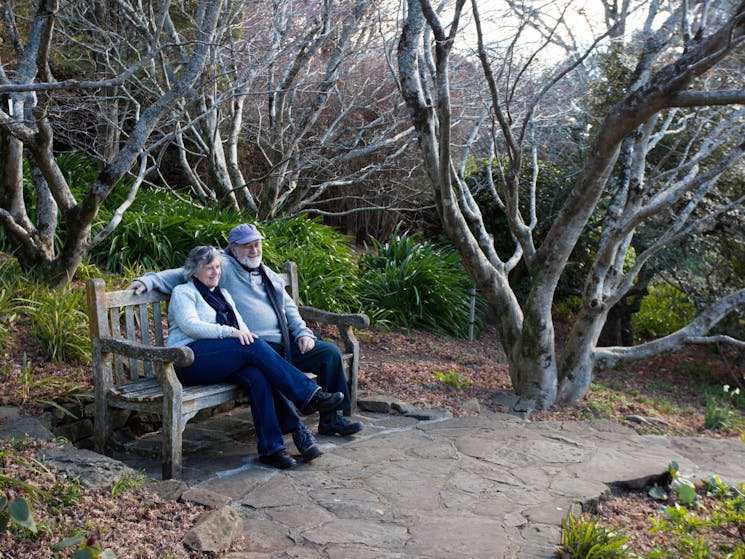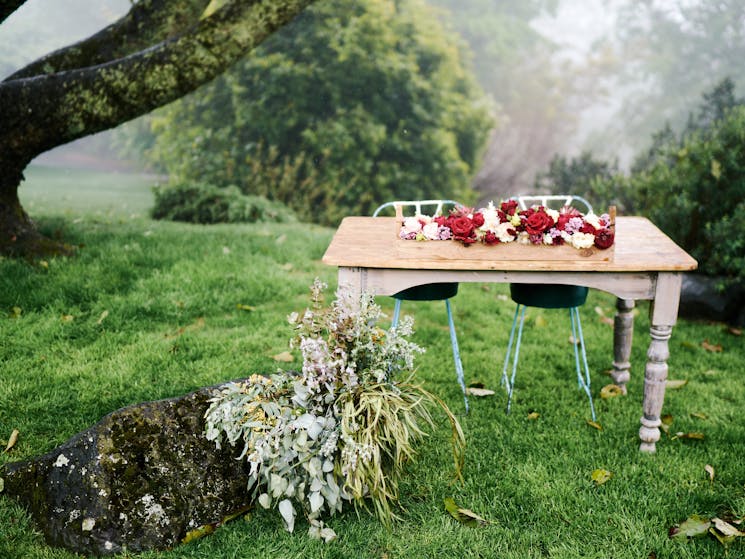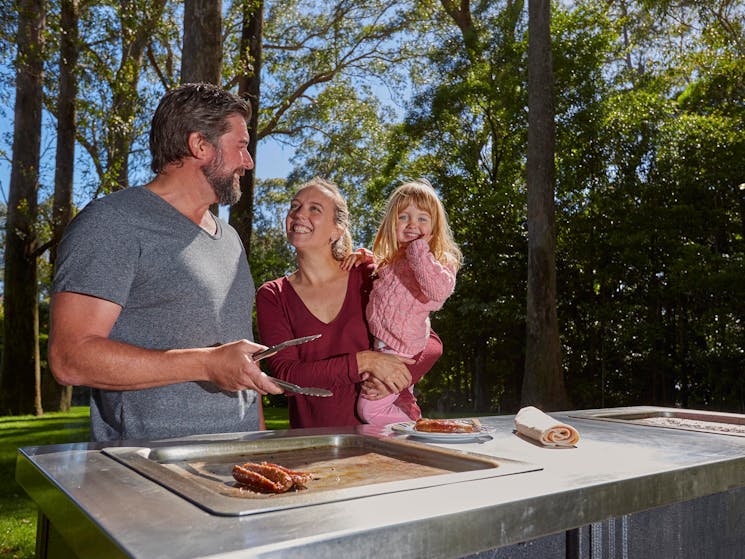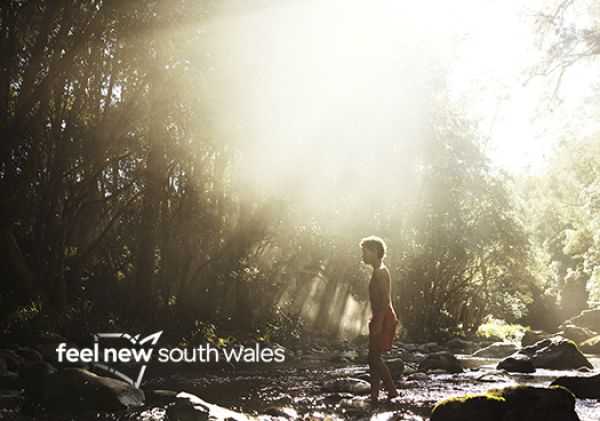The Blue Mountains Botanic Garden, Mount Tomah
Overview
The Blue Mountains Botanic Garden, Mount Tomah is the spectacular cool climate garden of the Royal Botanic Garden and Domain Trust. Located in the Blue Mountains, just 90 minutes from Sydney, the garden features thousands of plants from the southern hemisphere and around the world.
At 1,000 metres above sea level, the Garden at Mount Tomah overlooks the Greater Blue Mountains World Heritage Area and boasts stunning panoramic views. A walk around this 28 hectare estate is a botanic journey.
Find out about this stunning world heritage listed region at the Garden's Greater Blue Mountains World Heritage Exhibition Centre. Visitors can wander through this interpretive centre and learn why the Greater Blue Mountains region was made a World Heritage Area.
Facilities include a visitor centre, accessible amenities, exhibitions space featuring local art, cafe/kiosk, conference/venue hire, weddings packages, accommodation for up to 10 people, picnic areas, guided tours, bus parking, workshops and education.
Accessibility
Caters for people who are blind or have vision loss
Caters for people who are deaf or have hearing loss
Caters for people who use a wheelchair.
Caters for people with high support needs who travel with a support person
Caters for people with sufficient mobility to climb a few steps but who would benefit from fixtures to aid balance. (This includes people using walking frames and mobility aids)
